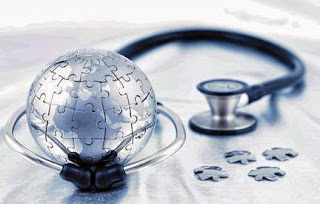What to Consider Prior to Switching to EHRs?
Source Link: https://blog.curemd.com/what-to-consider-prior-to-switching-to-ehrs/
When medical practices switch to Electronic Health Records (EHRs), the transition is never easy and can be quite cumbersome for many. It can make the practices suffer in their day-to-day operations and they can easily lose their primary focus: patient care.
Not only it can take months to implement the system, it requires extensive training for the staff that is going to use it. This can result in increased workload on the staff which might have to put in extra efforts to handle the change. However, these are just initial issues. Practices should not rate them too highly and altogether refuse to implement the EHR. Slowly but surely, they will increase their earnings after the implementation of EHR systems and will see a great efficiency in their workflows.
See Also : 3 Best Practices for Switching Your EHR
The question begs what the medical practices should consider before they gear themselves up for the big change. First and foremost, they need to understand that they are moving towards a computer healthcare model and need to eliminate paper charts altogether. Practices then need to analyze what information they need from paper charts integrated onto their EHR systems. It is very important to have all the important fields present in the EHR since referring back to paper charts after the implementation of the system will make the practice look unprofessional. Another thing they need to keep in mind is whether or not they will be able to handle the external paper-based systems like faxing, scanning, etc. in their EHR.
Let’s try and discuss a few key points needed to be kept in mind before implementing the EHR system.
Objective: No Paper Charts
The most important objective of using EHR system is that they need to absolutely eliminate the paper charts from their practices altogether. Therefore, it is absolutely important to sit and talk to your EHR vendor about important data that needed after the change is made.
Workstations
Another important point that practices need to keep in mind is what kind of workstations they will need for the implementation of their EHR software, whether they need desktops, laptops or just tablets. Again, they need to discuss with their vendor about software/hardware compatibility and other requirements for the implementation. It is imperative to have a workstation that will typically last for at least the next 5 years.
Another important area that they need to spend a reasonable amount of money is in setting up the LAN network across their practice. They need to interconnect all the nodes with a central server and have all data routed through it in order to run the EHR software smoothly and information is available across the whole practice.
Power Backups
Since EHR systems are heavily dependent on availability of power supply, practices need to make sure they have ample amount of power generation backup in order to keep their operations running smoothly whenever the main power goes down due to any issue.
Lab Connectivity
A very important aspect of EHRs is also whether their software will be able to interconnect with online labs across the state or country. This will certainly save them a lot of time and effort.
Compatibility With PM and Billing Software
Typically, a good EHR is fully compatible with practices’ practice management and medical billing software. This enables them to manage their entire operations through one centralized system and not get lost with a bunch of software.
Training and On-going Support
It is also very important for practices to secure a vendor that will provide you complete training and after-sales support since EHR systems are complex and require a certain amount of experience to be able to use them properly.
These were a few points which will certainly help you a lot before you make the big switch to EHR systems. Keep them in mind before the implementation and you will surely have yourself covered from any unexpected surprises when the shift is complete.



Comments